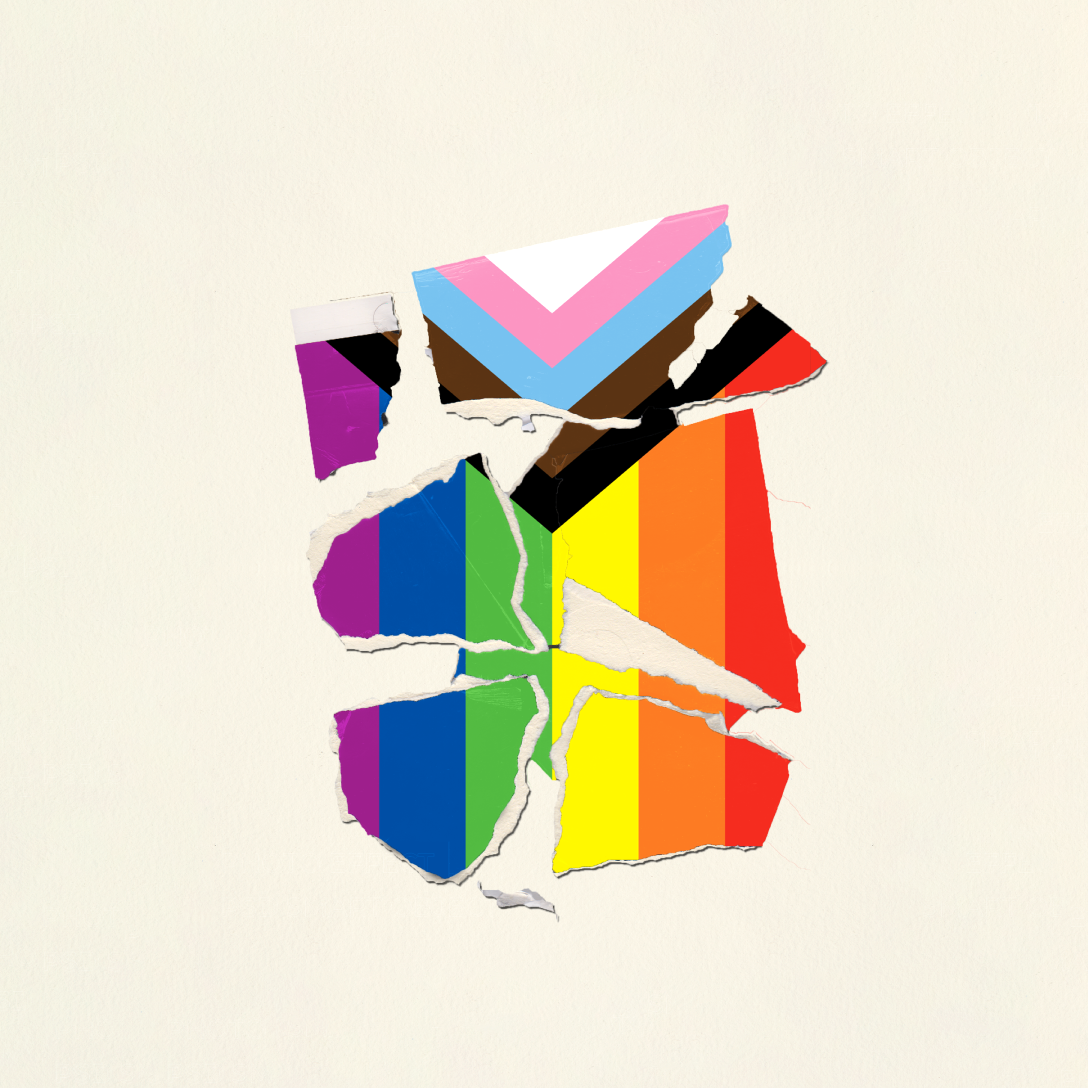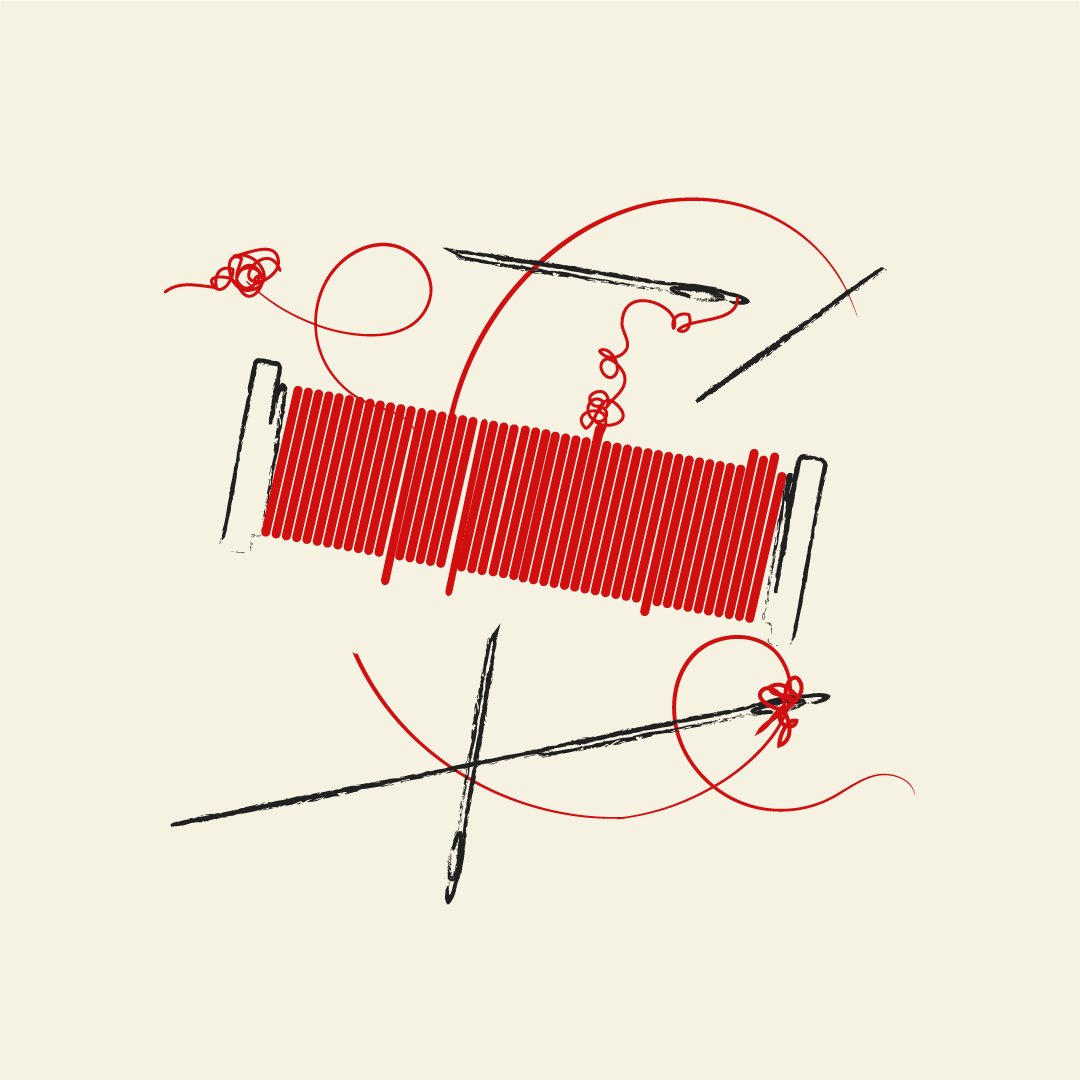Threats, Raids and Potlucks
What it’s like to be queer in Nigeria.
FEBRUARY 20, 2025
Standing in front of black and white curtains, Abuja Area Mama powders her face. The sequin neckline of her purple dress and the large gold jewelry on her ears and neck catch the light as she films herself putting on the final touches of makeup. The video, which Area Mama uploaded on August 7, 2024, provided her nearly 10,000 TikTok followers with a glimpse into her life as a trans woman and sex worker in Nigeria. “Getting ready to go and see my boyfriend last night,” read the caption.
Hours after Area Mama’s video was uploaded, police in the capital of Abuja found her motionless body beaten and bruised on the side of a highway. The influencer was dead. The official police statement following their preliminary investigation described her as “a man fully dressed in female clothing with no means of identification on him” and determined the killing to be a “culpable homicide.” An additional “thorough and discreet” investigation was launched by Abuja police, but six months later no suspects have been charged.
Transphobia and homophobia are common in Nigeria, which has no legal protections for LGBTQ+ people. The Same-Sex Marriage (Prohibition) Act of 2014 reinforced existing colonial-era laws that criminalized same-sex activity as “carnal knowledge against the order of nature,” punishable by up to 14 years imprisonment. The 2014 act went further than the original laws by banning marriages and civil unions, the operation of gay organizations and social clubs, public expressions of LGBTQ+ identity and advocacy of LGBTQ+ rights. In northern Nigeria, where Sharia law operates, homosexual activity can be punishable by death by stoning. There is no specific provision in the 2014 law covering trans people, but it is not possible to legally change your gender in the country and gender-affirming health care is hard to access. Trans Nigerians seeking hormone therapy typically obtain drugs through international pharmacies online and take them at home without guidance from medical professionals. Cross-dressing is prohibited under Sharia law in the north and the Nigerian military; in recent years, some lawmakers have attempted to pass a federal ban.
Area Mama’s murder took place amid rapidly spreading misinformation about LGBTQ+ rights in Nigeria, resulting in a surge in transphobia and homophobia. On social media, fans mourned the loss of Area Mama, whose content provided one of the few examples of a publicly out trans person living in the country. “I remember how unapologetic she was about being herself, and how beautifully her energy radiated every time she came on screen,” said Victoria, a Lagos-based queer woman who was in law school in Abuja at the time of Area Mama’s murder. Almost 6,000 people signed a petition calling for the Nigerian Ministry of Justice to take “immediate and decisive action” to thoroughly investigate her murder, categorize it as a hate crime, end violence against LGBTQ+ people and advocate for legislative reforms. At the same time, Nigerians posted hateful messages on Area Mama’s videos, misgendering her and saying that she deserved to die. No one expects the petition to put significant pressure on authorities or the government. Members of Nigeria’s queer community have come to accept that they only have each other — and that to live safely as themselves, they have to do so underground.
✺
Just over a month before Area Mama’s death, misinformation about the legalization of LGBTQ+ rights spread rapidly online. In June 2024, the country joined 73 other African, Caribbean and Pacific states in signing the Samoa Agreement, a cooperation deal with the European Union that establishes a legal basis for relations in trade, investment, sustainable development and governance. Daily Trust, one of Nigeria’s most widely read newspapers, falsely reported that there were clauses in the Samoa Agreement that promoted gender equality and would force the country to legalize same-sex relationships in exchange for financial support from the EU. In fact, the agreement made no mention of LGBTQ+ rights.
“Every queer person that is publicly out always has a sense of fear of the unknown … someone can decide to harm you out of nowhere.”
The claims provoked a surge in homophobic outrage and violence around the country. Nigerians criticized the government on social media for favoring Western ideals over Nigerian culture. Both broadcast and print media covered the controversy at length, highlighting many voices from Nigeria’s religious communities and discussing the need for government transparency to alleviate their concerns.
The government denied the claims, saying it would never compromise its anti-LGBTQ+ laws. It also lodged a formal complaint against Daily Trust with the National Media Complaints Commission, prompting an investigation into the newspaper’s reporting. Daily Trust issued a formal apology and accepted the commission’s verdict, which stated that parts of the story were inaccurate and fell short of Nigeria’s journalistic standards.
But the damage to the LGBTQ+ community, already facing unrelenting discrimination and violence, was done. “I’ve honestly never really felt safe,” Joseph, a gay law student and content creator in Lagos told me. “But during that period, I felt the most at risk.” (Some names of interviewees have been changed to protect their anonymity.) He received death threats and threats of sexual violence in his direct messages on Instagram and TikTok, as well as in public comments posted on his TikTok videos. “You never know when a threat will become reality,” Ebunoluwa Precious Gift, a trans multidisciplinary artist, told me. “Every queer person that is publicly out always has a sense of fear of the unknown … someone can decide to harm you out of nowhere.”
Nonprofit organizations across Nigeria provide support to LGBTQ+ communities, but they are dangerous to run and forced to operate underground. Under the 2014 law, registering, operating or joining gay clubs, societies and organizations is punishable by up to 10 years in prison. Organizations are typically only investigated when anti-LGBTQ+ whistleblowers inform the police directly because Nigeria’s law enforcement is under-resourced, but the risk of exposure and prosecution is ever-present.
Rather than lobby for national policy change, which they know is a losing battle given the government’s staunch anti-LGBTQ+ stance, many organizations prioritize smaller-scale efforts to improve the daily lives of queer folks.
QueerCity Media is a community-based media company focused on documenting queer lives in West Africa, with Nigerian headquarters in Lagos. In February 2024, these headquarters were raided by the police, following complaints from members of the local community and the organization’s landlord, who were not happy to see queer people coming in and out of the building, Timileyin Olaide Kayode, QueerCity’s founder, told me. (Before they reported the organization to the police, the neighbors and landlord also tried to extort him, he said.) The police took Kayode to the station where he spent the night in jail for “running a gay club.” He was released, and the charges against him dropped, after he managed to leverage his connections to a powerful individual within the government. Still, the threat of future raids has led QueerCity media to lay low. The events and workshops they run are now primarily hosted online, and some QueerCity employees have left the organization entirely.
Organizations that support the rights of trans and non-binary people are sometimes able to operate more openly because the 2014 act lacks a specific provision against trans people. Creme De La Crème (CDLC), for example, a Nigerian transgender and non-binary rights foundation, has been able to operate despite the hostile environment. The organization works with Nigeria’s National Human Rights Commission, a non-governmental group that promotes and protects human rights in the country, to educate state bodies, such as the Nigerian military, on the experiences of trans Nigerians. Even so, Franklin Ejiogu, CDLC’s executive director, said the organization’s offices and safe shelters have been raided repeatedly. CDLC has moved headquarters on multiple occasions and is now looking to buy its own properties to safeguard against threats from landlords and the public that can lead to raids.
Rather than lobby for national policy change, which they know is a losing battle given the government’s staunch anti-LGBTQ+ stance, many organizations prioritize smaller-scale efforts to improve the daily lives of queer folks. They run education initiatives to improve representation and stop the spread of misinformation, including hosting in-person panels, which they publicize as relating to “equality” rather than LGBTQ+ rights specifically. They also publish online material on the queer experience in Nigeria. In one episode of Q Convos, a podcast featuring conversations on queer identity and culture run by The Initiative for Equal Rights (TIERs), five queer Nigerians discuss the prevalence of kito, a slang term for people who entrap, assault and extort queer people through dating apps, as well as other luring mechanisms.
Despite the constant threat of police raids and prosecution, these organizations had created a network of genuine friendships.
Many organizations also provide food, funding and shelter to vulnerable community members, as well as host events designed to foster joy, community and self-expression. When a trans friend of Joseph, the law student, was disowned by her parents, TIERs provided her with housing and helped her raise money to start a new life. Obodo Nigeria, a queer rights advancement organization, runs a range of underground gatherings including potluck dinners, community game nights, art exhibitions, film screenings, open mic nights and trivia events. These events promote “togetherness and celebration just for the sake of it,” Victoria, the ex-Abuja law school student, told me.
✺
Last December, I went to one of Obodo’s potluck dinners. To attend, I had to fill out a Google Form with my name, age, pronouns, reason for going and links to my social media accounts so that organizers could verify my identity. The location of the event was sent the day before to minimize the risk of raids and kito.
The venue looked like any other house in a quiet residential neighborhood — a white, two-story building with a high black gate surrounding the property. I felt tense. I’d never attended a queer event in Nigeria, and it’s not common to go alone. I was quickly ushered in through the gate, which was shut firmly behind me by a security person. Once past the gate, I approached the person outside the front door, who was handling registration. They verified my name against the approved list and allowed me to go inside.
In the living room, queer vendors were selling self-published books, branded merchandise and handmade soap bars. Bean bags and mats were scattered across the space. One corner of the room offered an arts and crafts table while another had snacks and drinks.
Within minutes of my arrival, I met Gift, the multidisciplinary artist. We talked extensively about our shared love of makeup and how they put together that night’s look: on their lips, black outer liner faded into a metallic green base with shimmery gold at the center. I drifted to the arts and crafts table where I helped create a compliment map in which each participant wrote a kind word about someone else present. While coloring, I was joined by Victoria, and we shared opinions on queer media across the globe. As the evening progressed, we watched stand-up comedy routines, listened to renditions of popular songs and danced to house music.
When darkness settled over Lagos, we gathered outside, sitting on plastic chairs huddled together. Attendees shared inside jokes and reminisced about past gatherings over the years, including events organized by Obodo and similar groups. Despite the constant threat of police raids and prosecution, these organizations had created a network of genuine friendships. Watching Gift light up while talking about a recent women-only event she had attended in Lagos or listening to Victoria describe how freeing these spaces have been for her since returning from Abuja, I understood how gatherings offered relief from constant oppression.
The night wore on, but none of us were in a rush to leave.



